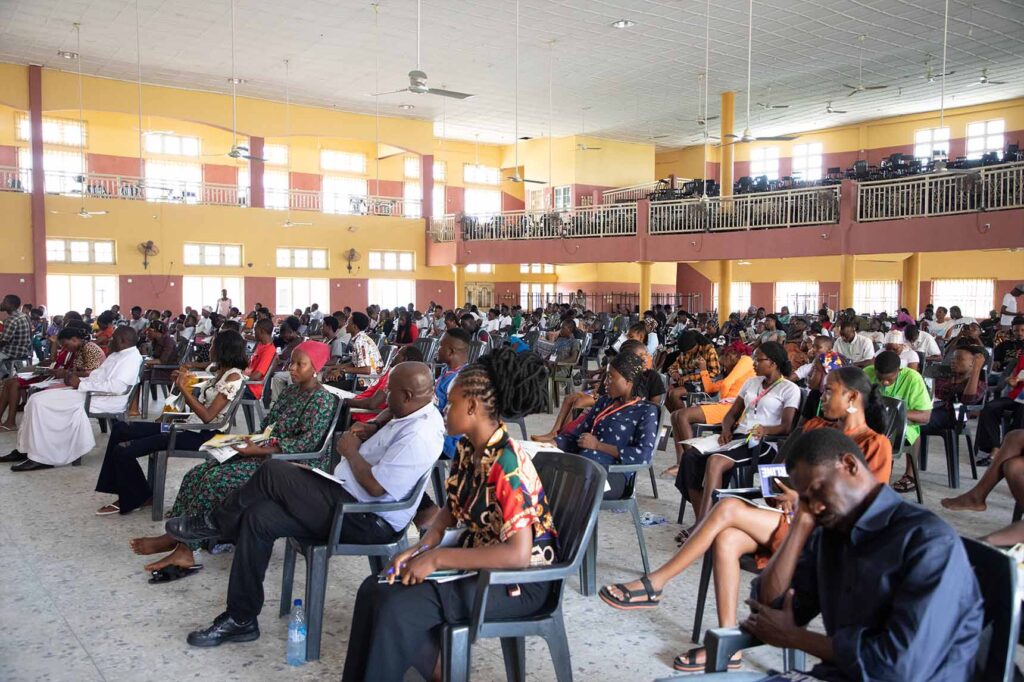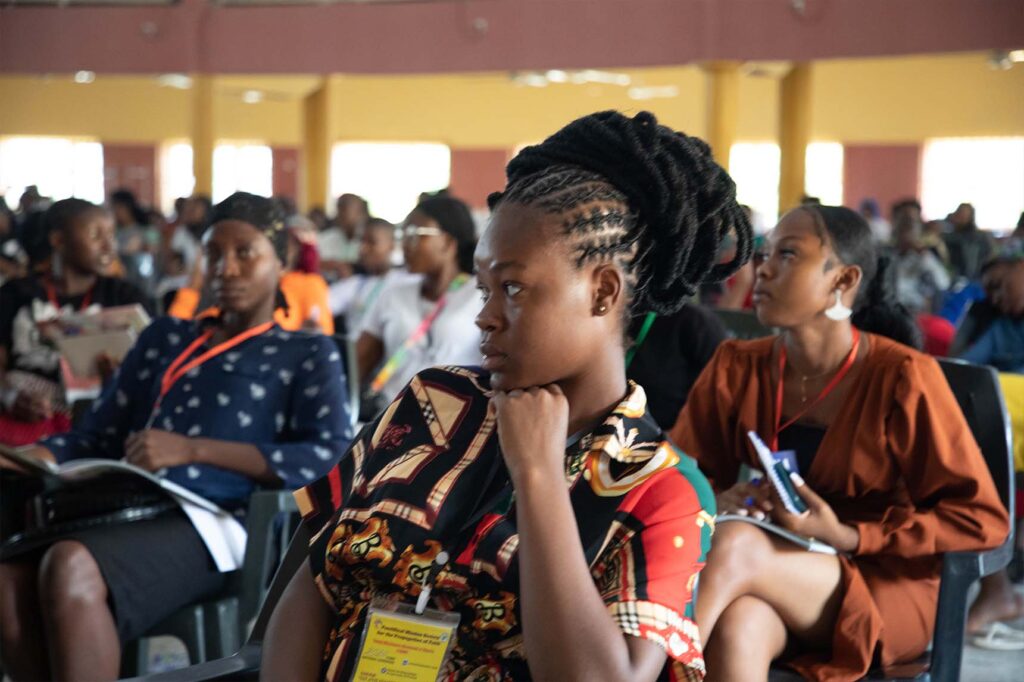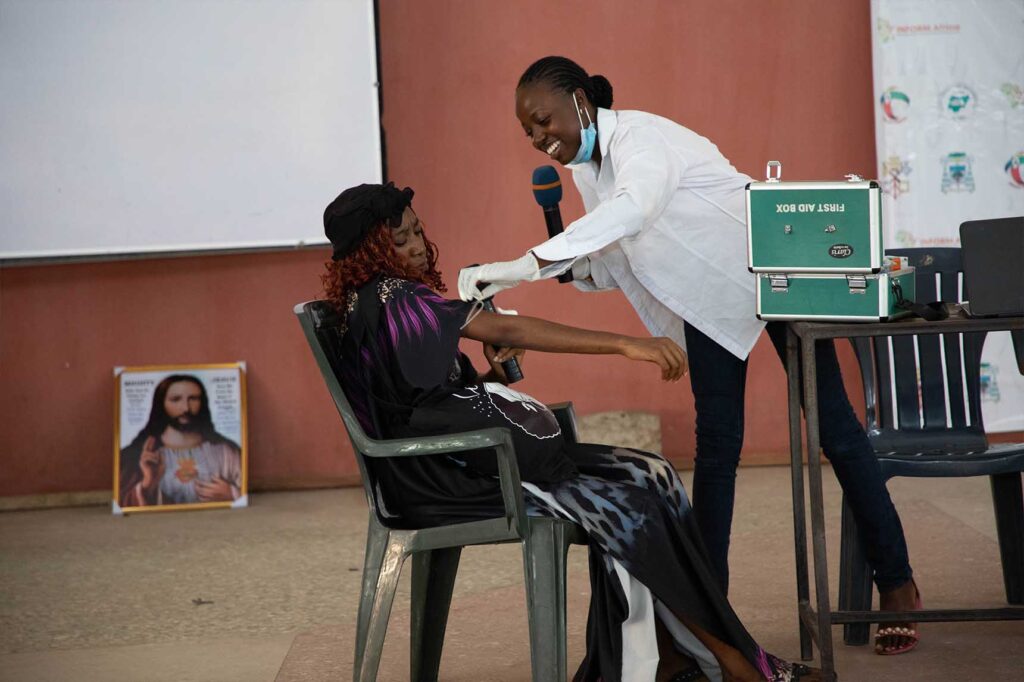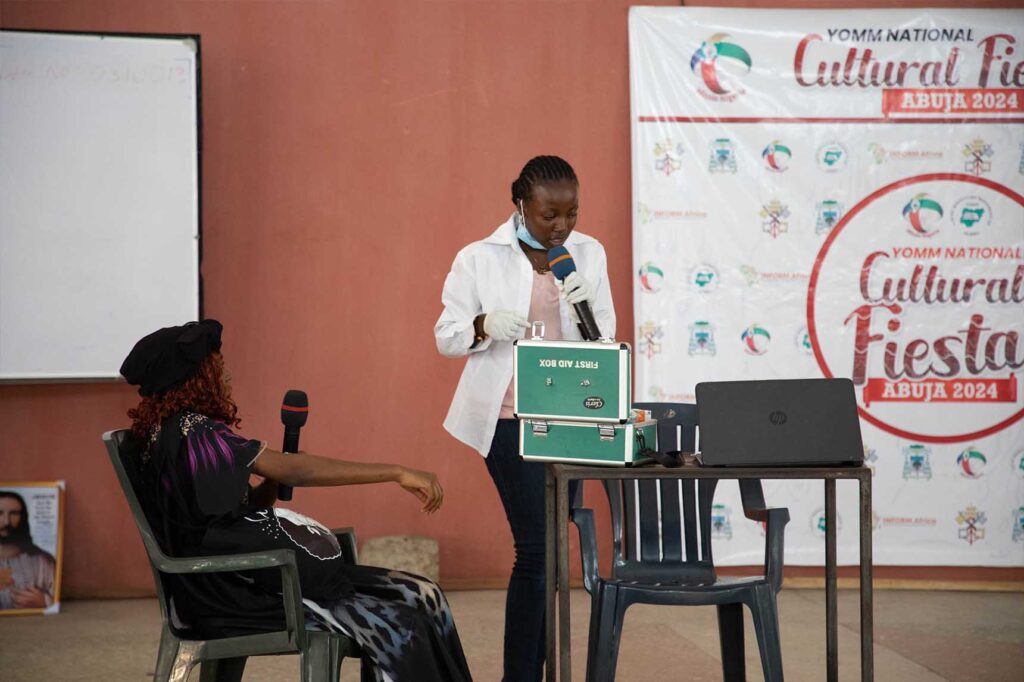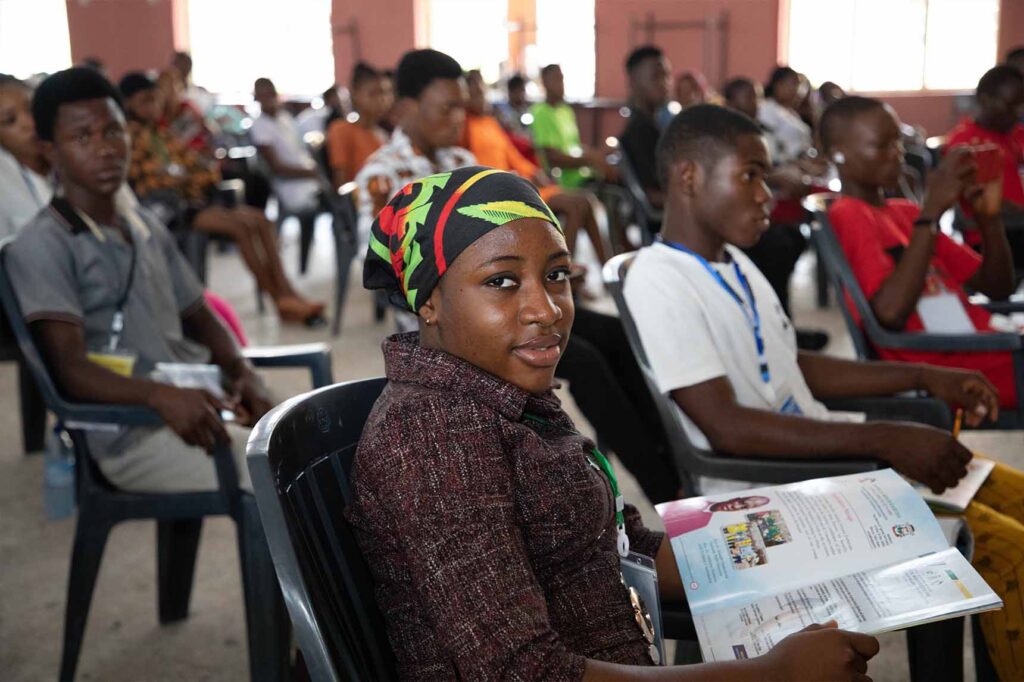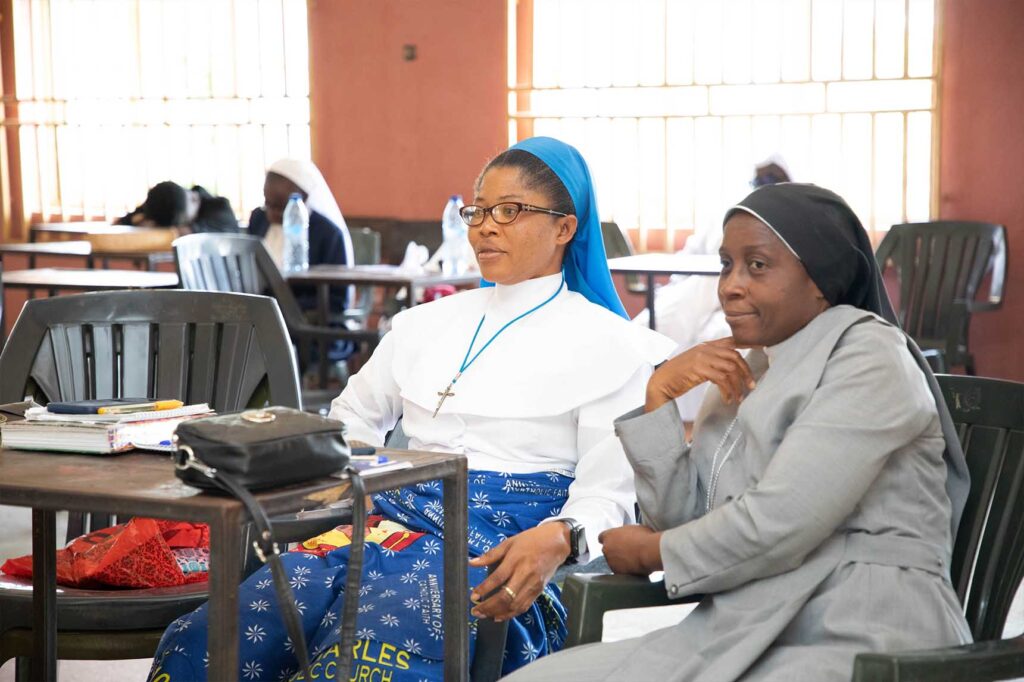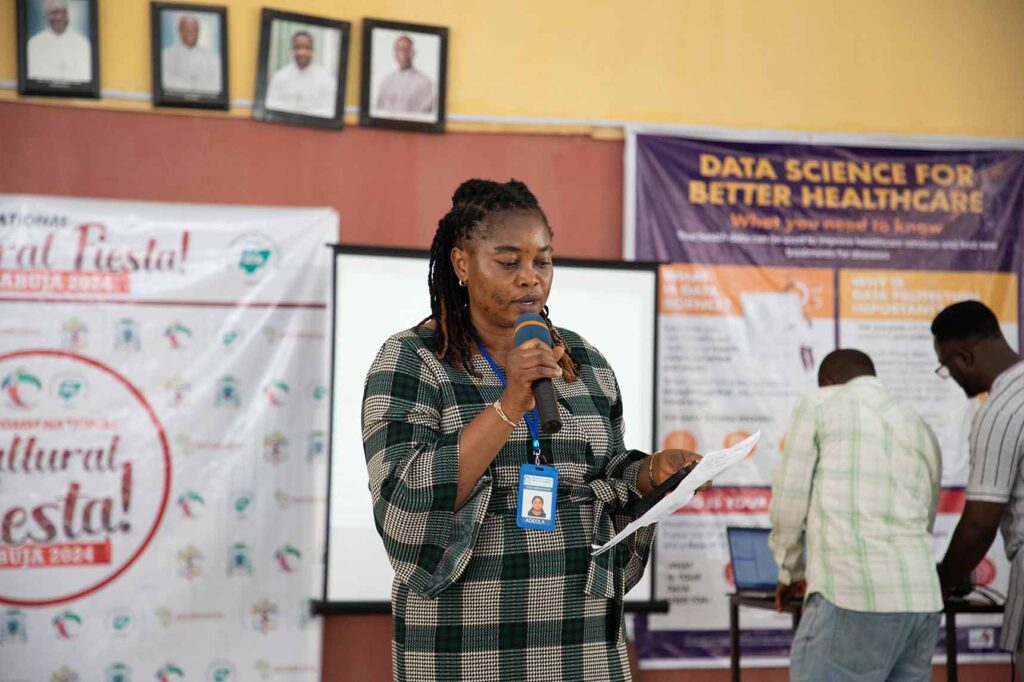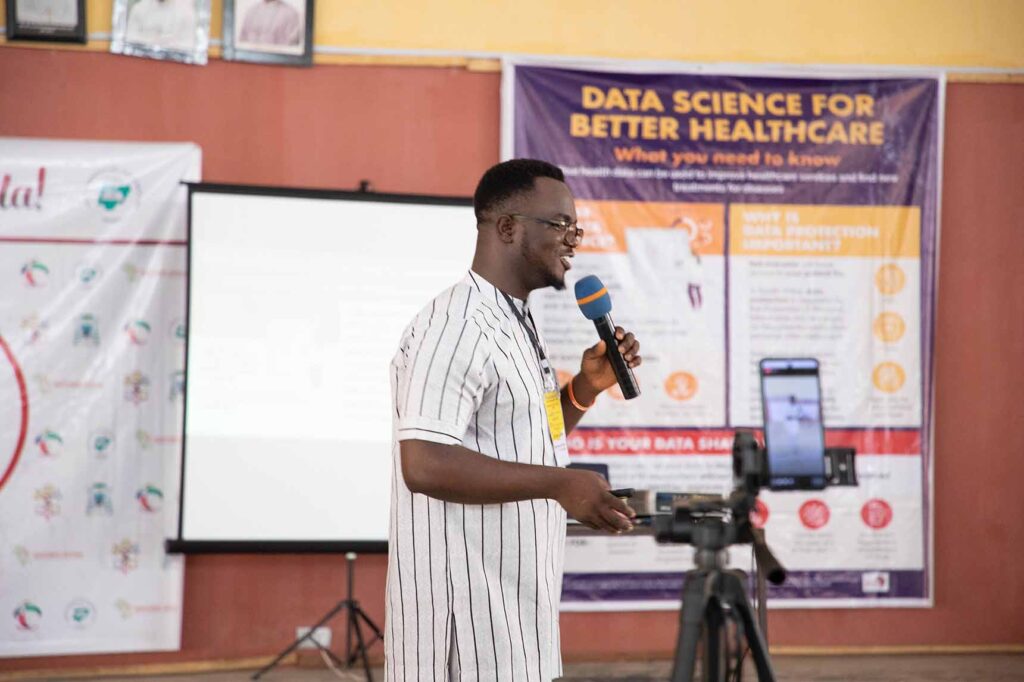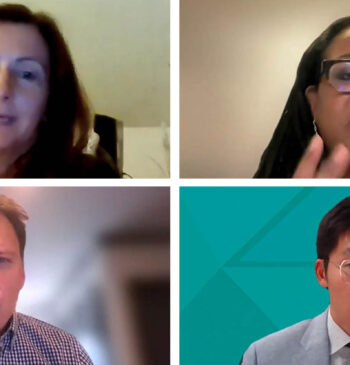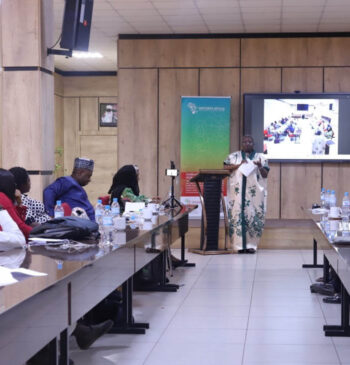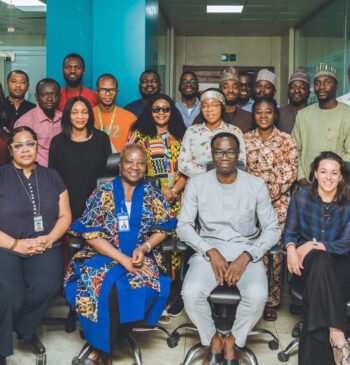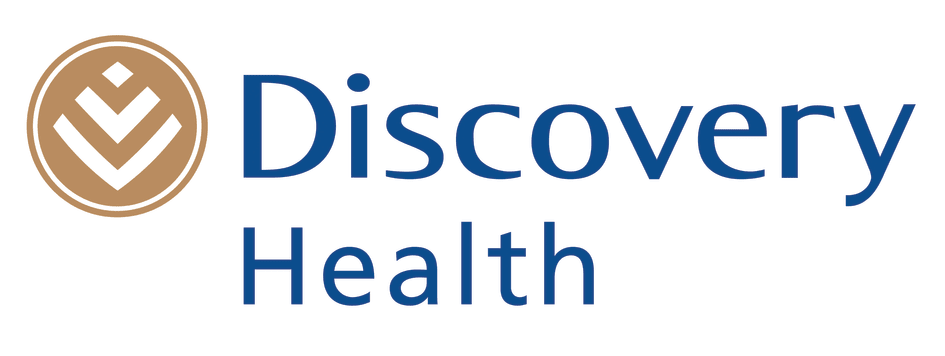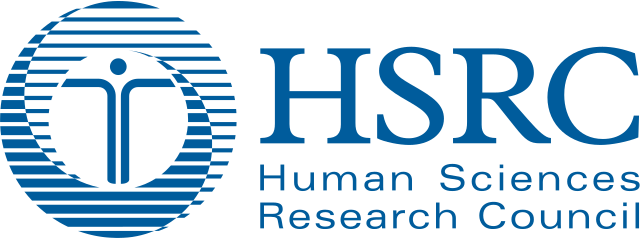As part of our ongoing efforts to center communities in discussions about data sharing, ensure their active participation in research and data usage that directly affects them, while acknowledging the sovereignty of their contributions as equal partners in advancing health science and research, INFORM Africa Research has made significant strides toward creating a dedicated arm for community-related activities.
This arm, known as the CEIP (Community Engagement Implementation Partners), was established in response to a need for more bidirectional engagement between communities and the research hub, while preserving the advisory role of the community advisory board (CAB).
The INFORM Africa CEIP consists of a South African unit and a Nigerian unit.
On September 5th, 2024 the INFORM Africa Nigerian CEIP leveraged the annual National Youth Cultural Congress organized by the Young Missionary Movement of Nigeria (YOMM), which brings together over 500 youth from all 36 states of Nigeria.
This year’s theme was “Youth Data Science Champions: Empowering Young Leaders on the Importance of Data Science.”
The CEIP worked closely with the INFORM Africa science communication unit to develop a drama script that was performed during the congress. The drama illustrated the journey of data from patient intake to its use in research, emphasizing the importance of consent, ethics, and community involvement in efforts to empower governments to better prepare for pandemics. The drama used relatable scenarios to highlight the value of utilizing data for public health benefits.
In addition to the drama, the congress included a session dedicated to providing general information about data and data science, presented in a way that was accessible to community members and non-experts.
Group discussions focused on addressing the challenges associated with data sharing at the community level. Participants identified the need to address stigma related to data sharing, using COVID-19 as a case study. They also offered recommendations on how to navigate these challenges effectively.
The INFORM Africa hub would like to express its appreciation to our ELSI REDSSA, which allowed us to adapt some of its communication materials to the Nigerian context, providing valuable resources for the successful implementation of this activity.
